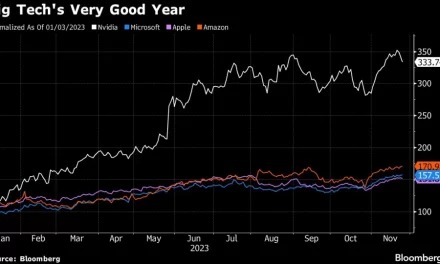According to Arvind Krishna, Chairman and CEO of IBM, artificial intelligence (AI) will have its earliest impact on white-collar jobs. In an exclusive interview with CNBC aired on Tuesday, Krishna stated that generative AI and large language models have the potential to enhance productivity across enterprise processes.
Krishna pointed out that this enhancement in productivity might lead to achieving the same tasks with fewer employees, particularly affecting back-office, white-collar positions. He attributed this trend partly to the changing demographic landscape, with a decline in the working-age population, creating the need for increased productivity to maintain a decent quality of life.
Krishna emphasized AI’s role as a solution to address this productivity demand, and he believes that AI will play a significant role in reshaping various industries. He noted that AI-driven chatbots like OpenAI’s ChatGPT have already experienced a surge in demand, prompting many companies to develop their own large-language models.
IBM, being an early player in AI, invested in its AI platform, including the development of the Watson supercomputer between 2004 and 2011. IBM’s focus on AI aligns with its strategic shift away from computer hardware, marked by the sale of its personal computer division to Lenovo in 2005.
In May, IBM introduced WatsonX, a tool for building and deploying machine learning models. This move followed the sale of its data and analytics unit, Watson Health, due to years of unprofitability.
Krishna also touched on IBM’s hiring strategy in relation to AI. He mentioned a plan to pause hiring for roles that could potentially be replaced by AI, such as certain white-collar positions. He clarified that the intention is not to displace jobs but to augment human workers with AI assistance, thereby boosting productivity.
According to Krishna, AI will create more jobs than it displaces. This sentiment is echoed by other leaders, including Singapore’s Deputy Prime Minister Lawrence Wong, who believe that while AI may disrupt the labor market, it will not eliminate jobs entirely.
Krishna’s focus on AI aligns with his role at IBM, where he took over as CEO in April 2020 and became Chairman in January 2021. Under his leadership, AI has been highlighted as a key technology for the future, particularly in areas like IT operations, automation, customer service, and human resources. The second quarter of the year saw data and artificial intelligence products as the fastest-growing segment of IBM’s software business. Krishna emphasized the remarkable efficiency of large language models, which have drastically reduced the cost of creating models for specific tasks.
In conclusion, Krishna’s insights emphasize the transformative potential of AI, particularly in terms of its impact on white-collar jobs and its ability to enhance productivity across various sectors.





